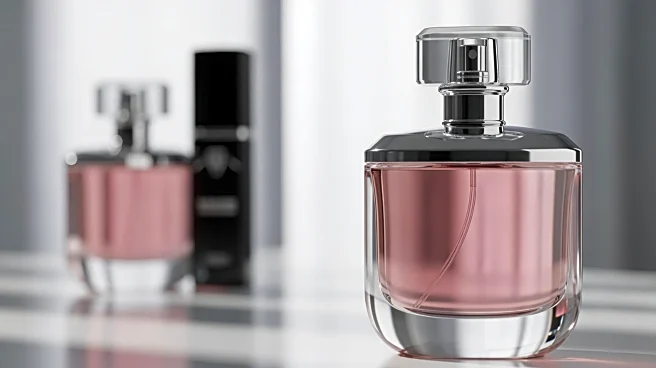What's Happening?
Kering has announced the sale of its beauty division to L’Oréal for approximately four billion euros. This strategic move is aimed at reducing Kering's significant debt, which stood at around 10.5 billion euros at the end
of 2024, and refocusing on its core business of luxury ready-to-wear and leather goods. The transaction includes the perfume house Creed and grants L’Oréal exclusive long-term licenses to develop beauty and fragrance products for several of Kering's brands. This decision follows a challenging operational period for Kering, marked by a decline in turnover and pressure on margins in the first half of 2025.
Why It's Important?
The sale is significant as it allows Kering to alleviate financial pressure by reducing its debt and reallocating capital to its core luxury fashion business. This move is expected to streamline Kering's operations and enhance its focus on high-margin activities such as fashion and leather goods. For L’Oréal, acquiring Kering's beauty division strengthens its position in the luxury beauty market, providing an opportunity to expand its portfolio with premium brands. The transaction is also likely to impact investors positively by clarifying Kering's strategic direction and reducing uncertainty about its financial health.
What's Next?
Following the sale, Kering is expected to concentrate its resources on its main brands, particularly Gucci, to drive organic growth. The shift to a license model for beauty products means that Kering will no longer manage these assets internally, potentially accelerating growth under L’Oréal's expertise. For L’Oréal, the acquisition offers a chance to enhance its luxury and perfumes division, leveraging its scale to achieve commercial acceleration. Investors will likely monitor Kering's debt reduction and strategic focus on high-margin activities, which could influence market perceptions and stock performance.
Beyond the Headlines
The transaction highlights a broader trend of companies refocusing on core competencies and divesting non-core assets to optimize their portfolios. For Kering, this means a leaner balance sheet and a sharper focus on its most profitable segments. The sale also underscores the complexities of managing diverse business units and the benefits of partnering with specialists like L’Oréal in areas outside a company's primary expertise. This strategic realignment could set a precedent for other luxury brands facing similar operational challenges.









